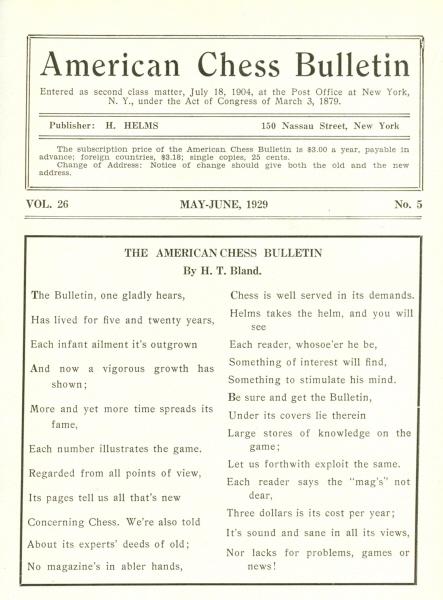
Edward Winter
Examples of notably good or notably bad chess poetry are always of interest. A high scorer in the latter category is the following, which ‘H.T.B.’ (Henry Thomas Bland) managed to have published on page 64 of the March 1930 American Chess Bulletin:
Miss Menchik
Miss Menchik is of master rank,
It seems Maróczy she’s to thank;
Still, there is little doubt of it
She owes a deal to native wit.
Much knowledge she has garnered in,
E’en ’gainst the giants she’ll oft win
– No doubt sometimes to their chagrin –
Chess champion of the gentler sex
Here’s luck to her! Should she annex
In her next venture some big prize
Keen critics will feel no surprise.
(Kingpin, 1992 and pages 197-198 of Kings, Commoners and Knaves)
A further sample of the dithyrambic skills of H.T. Bland. On page 207 of the December 1929 American Chess Bulletin he exalted the challenger in that year’s world championship match:
Bravo ‘Bogol’, you’ve shown pluck.
One and all we wish you luck.
Gee, some thought you’d barged between
Other players who’d have been
Less likely straightaway to lose
Just as friend Alekhine might choose;
Undaunted, ‘Bogol’, you went in
Believing you’d a chance to win.
Or failing that, to make a fight,
Which you are doing as we write.
(Kingpin, 1994 and page 198 of Kings, Commoners and Knaves)
The name H.T. Bland (1858-1932) is already known to our regular readers on account of his egregious verse, but in the offering below he truly lives down to his name:
Kashdan has sprung up into fame
All of a sudden, as it were.
Scarcely a handful till quite late
Had been familiar with his name.
‘Divine afflatus’ he has shown
A gift bequeathed him by the gods,
Now far and wide his power is known.
Source: American Chess Bulletin, January 1931, page 13.
(Kingpin, 2000 and page 396 of A Chess Omnibus)
Catherine Glynn (Southampton, England) asks for information about the chess writer and poet Henry Thomas Bland.
Another example of his way with words is the start of ‘Internal Fires’, a poem published on page 57 of the March 1930 American Chess Bulletin:
I used to play chess with the dearest old chap,
Whom naught could upset whatever might hap.
He’d oft lose a game he might well have won
But made no excuse for what he had done.
If a piece he o’erlooked and got it snapped up
He took it quite calmly and ne’er ‘cut up rough’.
On page 81 of the May-June 1929 Bulletin his work even received star billing:

The Bulletin published many other specimens of his dodgy dogged doggerel, and his prose contributions included an inconsequential feature on Blackburne (March 1929, pages 46-47) and two brief, vapid sets of ‘Chess Memories’ (March 1930, page 51 and April 1930, page 75). That year Bland produced a compilation of his verse and prose, under the title Chess in Lighter Vein. Dishearteningly, the 48-page brochure was welcomed not only by the Bulletin (September-October 1930, page 154) but also by the BCM (August 1930, page 280). The self-publication was available from Bland at 25 Harvey Road, Wallasey, Cheshire, England.
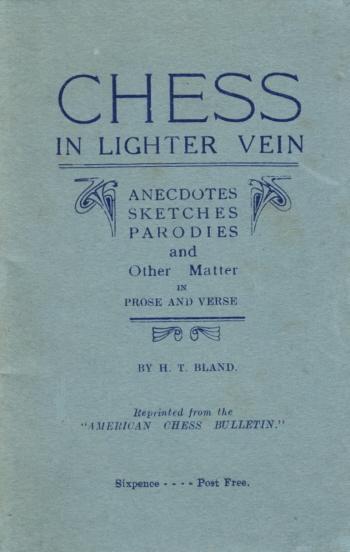
On page 184 of the November 1931 Bulletin Bland referred to ‘my late brother, Mr W.R. Bland’ having been responsible for chess problems in the BCM under the magazine’s first editor, John Watkinson.
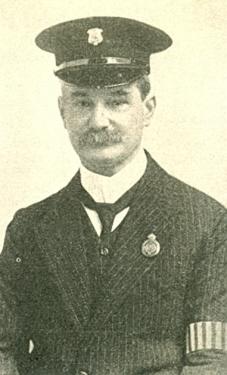
Henry Thomas Bland, American Chess Bulletin, September-October 1932, page 147
H.T. Bland died in 1932. Jeremy Gaige’s Chess Personalia (private 1994 edition) states that he was born in Belper [Derbyshire], England in the first quarter of 1858, and from the records available at the Family Search website we take him to be the Henry Thomas Bland who was born on 3 March 1858 and christened in Duffield, Derby on 30 April. (His elder brother, William Robert, died in Duffield in 1929; see the BCM, April 1929, page 132.)
If that information is correct, the American Chess Bulletin misstated H.T. Bland’s age (‘70 years of age when he died’) in the obituary published on page 147 of its September-October 1932 issue. Following details supplied by his brother-in-law, Mr A. Dalby of South Hill Park, London, the Bulletin added that Bland ‘was born near Derby and worked in the secretary’s office on the Midland Railway. ... After his retirement from the railway some years ago, he had lived in Southport and London’. It may, though, be wondered whether ‘Southport’ is correct, since Gaige lists him as having died in Stockport.
The Bulletin recorded that Bland died a few days after attending the chess congress in Cambridge. We note that he played in the Second Class tournament there, finishing last with a score of +1 –7 =0 (BCM, May 1932, page 196).
(5112)
On page 27 of Chess in Lighter Vein Bland published another poem about Vera Menchik:
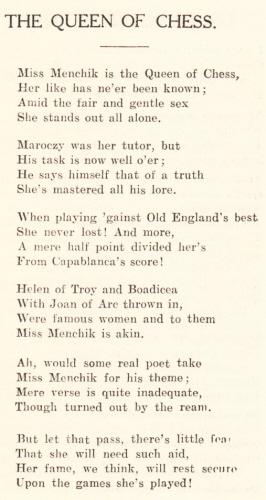
Referring to Oscar Wilde on page 261 of the December 1953 Chess World, C.J.S. Purdy wrote ‘Wylde’. The misspelling brought forth a clever correction from a reader, R. Jackson, on page 8 of the January 1954 issue:
Sir,
Why do you spell Wilde with a Y?
Was not the man lord of the I?
Now he shouts from the Shades,
Whether furnace or glades,
‘Purdytion take Purdi’s damned Y’.
(Chess Café, 1998 and page 255 of Kings, Commoners and Knaves)
Page 48 of the February 1967 Chess World had an article
entitled ‘Chess Clerihews’ (‘by “Chielamangus” and Wife’). The
poems featured, among others, Ozols, Endzelins, Fuller and Purdy.
Some textual corrections were published on page 64 of the
March-April 1967 issue. See too page 125 of the July-August 1967 Chess
World.
Wordsworth Donisthorpe (1847-1914) may be the only person to have suffered ‘censorship’ over a chess poem. Pages 138-139 of the January 1895 Chess Monthly published a ‘British Chess Club Alphabet’. Two extracts:
B stands for Bernard, the chessplayers’ Nemesis;
For daily and nightly he lives on the premises.
R stands for Reeves, whom the public entrusts,
With the busting of openings and opening of busts.
Thirty years later (BCM, March 1925, page 127) it was reported that the Chess Monthly had deleted the rhyming couplet regarding one prominent member of the British Chess Club, Professor Klein:
K stands for Klein, the bacillus’s horror
At chess I would back the bacillus termorrer.
(Chess Café, 1998 and page 255 of Kings, Commoners and Knaves)
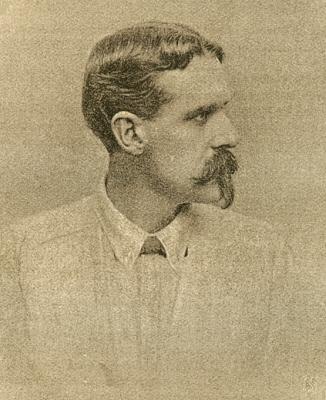
This photograph of Wordsworth Donisthorpe was published on page 97 of the December 1890 Chess Monthly, and the following page had a biographical note on his chess career and non-chess writings. Below is the full text of his poem as published in the Chess Monthly:

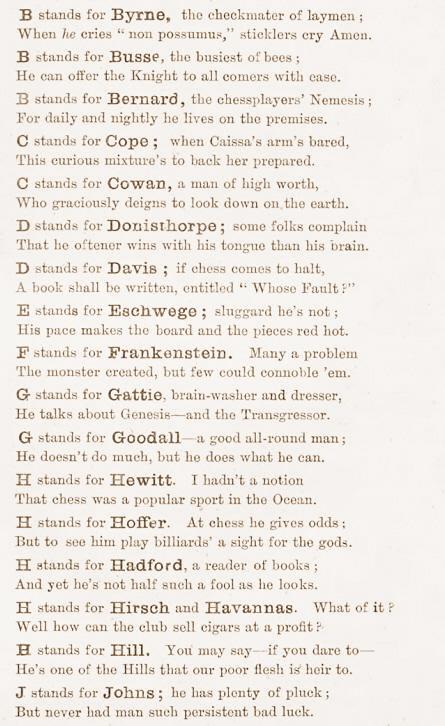
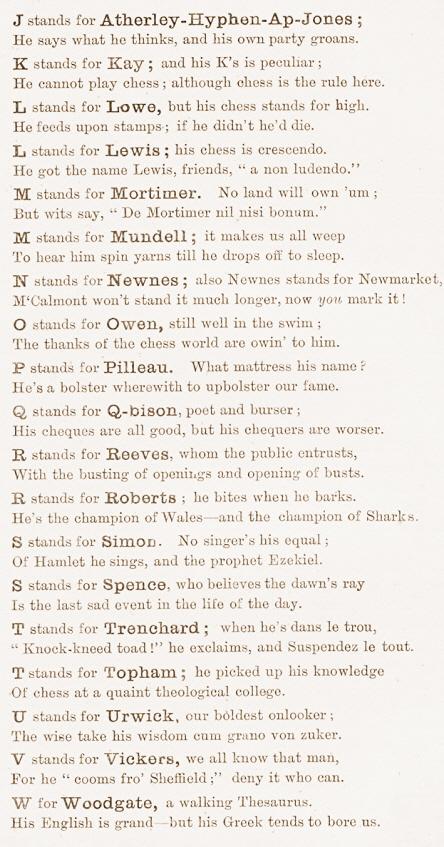
As mentioned in our earlier item, the brief feature below appeared on page 127 of the March 1925 BCM:
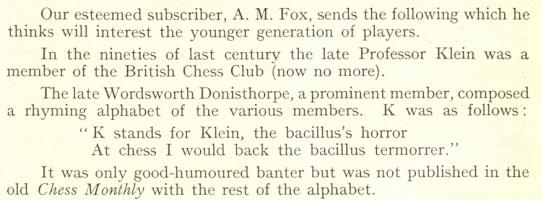
A.M. Fox returned to the subject in an article ‘Reminiscences of the British Chess Club’ on pages 34-35 of the February 1941 BCM, stating that Klein was ‘a bacteriologist at St Bartholomew’s Hospital’ and ‘quite a good player’. The couplet on Reeves was explained as follows:
‘Mr H.A. Reeves was by profession a surgeon with a large clientele among ladies, and he was known in the chess world by his insistence that the move P-KB4, as the fourth [sic – third] move in the Ruy López, was the best defence.’
(5662)
Some Editors – pretend to edit –
Use scissors and paste and give no credit.
Source: Columbia Chess Chronicle, 20 August 1887, page 66.
The Chronicle credited this to the Celtic Times, but gave no further particulars.
(2635)
Nicolò Valdettaro (Milan, Italy) writes:
‘The poem “Deep Chess” by Lawrence Ferlinghetti, one of the most famous poets of the “beat generation” and one of the few still alive today, was published in his 1976 book Who Are We Now?’
From our collection:
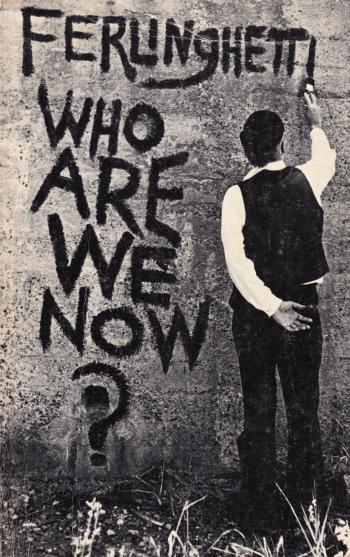
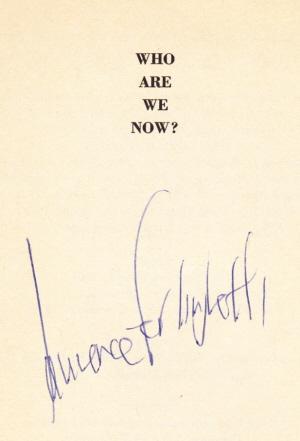
Our verse books also include a pair with similar titles to each other – Poems and Chess Problems by J.A. Miles (Fakenham, 1882) and Poems and Problems by V. Nabokov (New York, 1970) – and the following:
Chess game and other poems by J. De Lemarter (1952)
The Poetry of Chess by A. Waterman (London, 1981)
Veinte Sonetos para el Ajedrez by F. Neri (Oviedo, 1985)
Ulmericks by F. Grupp and R. Nuber (Ludwigsburg and Ulm, 1989)
Ajedrez by R. Paseyro (Madrid, 1998)
Chess Pieces by D. Solway (Montreal & Kingston, 1999).
(2759)
An addition to the above list is Chess: A Poem, in Four Parts by Charles Tomlinson (London, 1854). Our copy was inscribed by Miron J. Hazeltine:
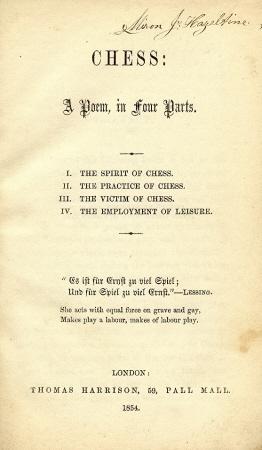
(2810)
In the present item we wish to focus on Miron Hazeltine’s wife (whose pseudonym was Phania). From page 33 of the February 1905 American Chess Bulletin:
‘Mrs Hazeltine, whose maiden name was Hannah M. Bryant, a relative of the late William Cullen Bryant, is a poet of no mean ability and she has steadily striven to advance the cause of the husband’s favorite game through her pretty sentiments quaintly set in rhyme. The December number of the Bulletin contained a special contribution from this gifted admirer of Caissa. Mr and Mrs Hazeltine celebrated the 50th anniversary of their marriage on 20 July 1903.’

From page 133 of the December 1904 American Chess Bulletin
In announcing Miron Hazeltine’s death, the April 1907 issue of the Bulletin (page 81) stated:
‘In a spirit of resignment and with abiding faith, she writes thus of her husband’s decease: “After traveling as partners in the rough ways of life for almost 54 years, my husband, wearied and spent, has just stopped for rest at a wayside inn, while I still struggle forward to a station just beyond, where, I, too, shall lay down the burden and we shall be forever at rest.”’
Another of her poems had appeared on pages 182-183 of the New York, 1880 tournament book: ‘To the Knights of the Fifth American Chess Congress by Mrs H. Bryant Hazeltine.’ It was reproduced on page 147 of Thomas Frère and the Brotherhood of Chess by Martin Frère Hillyer (Jefferson, 2007), and page 149 presented a portrait of her, dated 1860. The book gave her forename as Harriet rather than Hannah.
The above poem ‘A Winning Game’ was published, together with seven others on chess (‘An Enigma’, ‘Check-Mate’, ‘Chess Teachings’, ‘Chess Similes’, ‘My Problem’, ‘Caissa’s Field of the Cloth of Gold’ and ‘The Final Game’), in the very scarce book The Poems of Hannah Bryant Hazeltine (Concord, 1910).
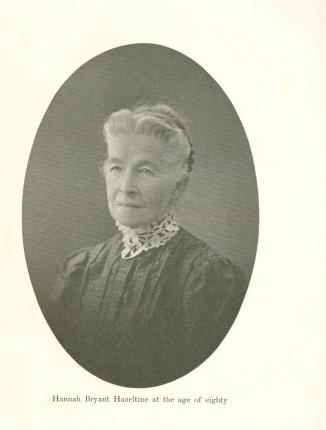
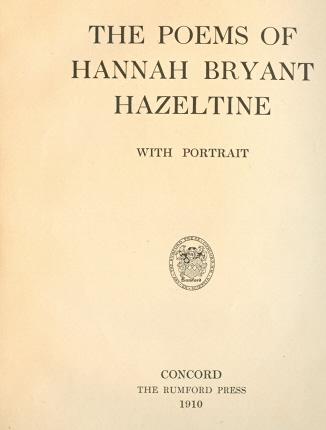
The biographical note on pages 1-2 included the following information:
‘Hannah Bryant Hazeltine was born in New Boston, NH, 20 August 1827. She was the youngest of a family of seven children born to Asa and Mehitable Snow Bryant, her father being in direct descent from Stephen Bryant, the first of the Bryant name to settle in the Old Colony in its early days. Philip Bryant, the father of William Cullen Bryant, the most noted member of the Bryant line, was first cousin to Asa Bryant ...
When about 19 years of age, in a literary society of which they both were members, Miss Bryant became acquainted with Miron J. Hazeltine, whom she afterward married. Being possessed of a good degree of poetical taste, Mr Hazeltine became interested in his wife’s intellectual pursuits and was of great assistance to her in some of her literary endeavors.
The first decade of their married life was spent in New York City, where Mr Hazeltine conducted a successful school, Mrs Hazeltine being his assistant and helper for the next two or three years ...
About the year 1862 Mr Hazeltine removed his family from New York City to New Hampshire, shortly afterward taking up his abode at The Larches, in Thornton, NH, which is the present residence of Mrs Hazeltine and still bears the name by her conferred upon it. ...
Mrs Hazeltine has four living children ...’
The book also contained these two photographs:
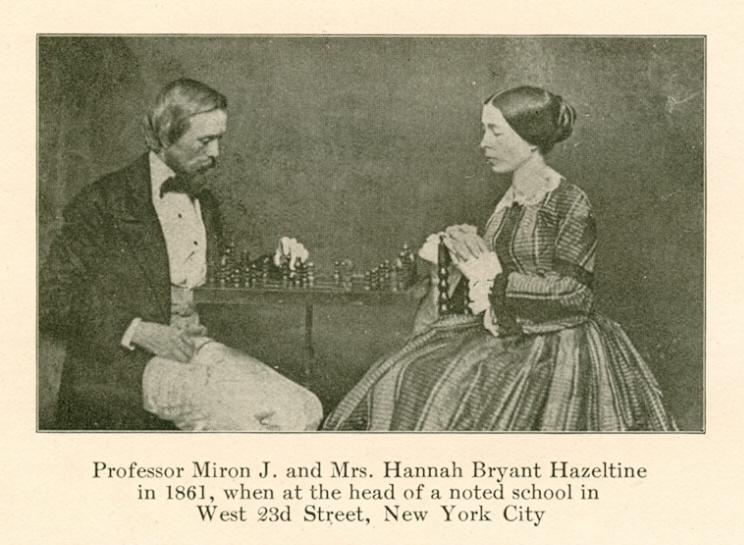
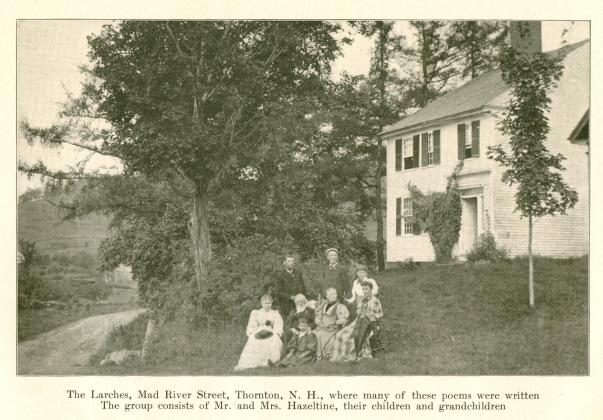
Our copy of The Poems of Hannah Bryant Hazeltine contains a handwritten dedication by her:
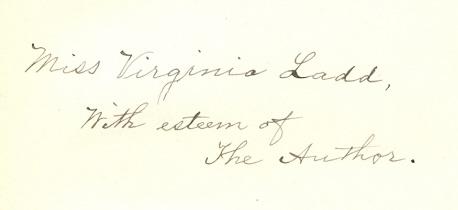
(5456)
Like new-laid eggs Chess Problems are,
Though very good, they may be beaten;
And yet, though like, they’re different far,
They may be cooked, but never eaten.
Source: page 58 of Poems and Chess Problems by J.A. Miles (Fakenham, 1882). The same page also had an acrostic:
Blackburne our Champion’s praise we sing,
Long may he reign of Chess the King;
And forth, triumphant from the fray,
Crowned with the Victor’s wreath of bay,
King-like may come. On checker’d fields
Blindfold his battle-axe he wields;
Undaunted by the loss of sight,
Relentless he displays his might.
Now, covered with undying fame,
England exalts her Hero’s name.
The following acrostic by W. Harris is to be found in another book published in 1882, A Complete Guide to the Game of Chess by H.F.L. Meyer, page ix:
Chess is such a noble game,
How it does the soul inflame!
Ever brilliant, ever new,
Surely chess has not its due;
Sad to say, ’tis known to few!
A syrupy acrostic tribute to ‘Reuben Fine’ was given by John L. Foster on page 372 of the December 1943 Chess Review. Page 73 of Chess Pie, 1922 had a ‘double acrostic’ of such complexity that we propose to move on quickly to a related topic, chronograms, which were the subject of a brief feature by J.H.E. on page 199 of the May 1896 BCM. It gave what was thought to be the first chronogram on chess, which described the recent St Petersburg tournament:
Four eXperts o’er the Chess boarD fIght,
AnD Lasker VVon by pLay so brIght:
TarrasCh Left out, the thIng’s In Doubt,
VVho has the VVInner’s rIght to shout.
Total: 1896.
Below is a Morphy acrostic by C.V. Grinfield from page 334 of the Chess Player’s Chronicle, 1861:Mightiest of masters of the chequer’d board,
Of early genius high its boasted lord!
Rising in youth’s bright morn to loftiest fame,
Princeliest of players held with one acclaim;
Host in thyself – all-conquering in fight: –
Yankees exult! – in your great champion’s might.
The following double acrostic (i.e. with identical letters starting and ending each line) by W.A. Ballantine was given on page 153 of the American Chess Journal, September 1878:
Charming as the sweetest music;
High above the common reach,
Easy to the bright and wise;
Splendid in the hands of genius;
Such the royal game of chess.
On page viii of The Golden Treasury of Chess (New York and Philadelphia, 1943) F.J. Wellmuth gave an acrostic poem he had written on ‘Harry Nelson Pillsbury’ in 1902.
(Kingpin, 2000 and pages 388-389 of A Chess Omnibus)
Wellmuth’s composition was published on page 99 of Checkmate, February 1903.
The poem by Miles which began ‘Like new-laid eggs ...’ was also given on page 230 of the June 1882 BCM, together with this composition by W.F. Payne of Abingdon:
Behold, disastrous fate, a Problem cooked!
’Tis like some Castle safe from front attack,
To which, a little loophole overlooked,
A Knight gains fatal entrance at the back.
Miles’ book Poems and Chess Problems also had acrostical compositions based on ‘Miron and Phania’ (page 53), ‘Anderssen’ (page 57) and ‘Wilhelm Steinitz’ (page 110). The last of these was published too on page 285 of the September 1882 BCM. Pages 347 and 348 of the magazine’s October 1882 issue had poems on ‘Paul Morphy’ and ‘Howard Staunton’, by Frideswide F. Beechey and Robert Bennett respectively.
This acrostic poem by W. Williams was published on page 275 of the Chess Player’s Chronicle, 29 November 1890:
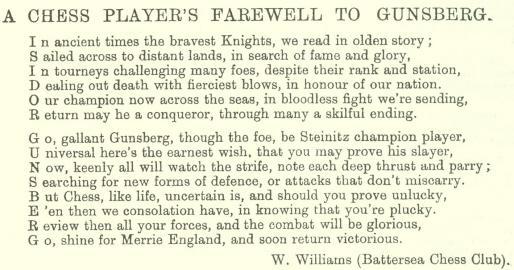
(5137)
Bridging the gap between poetry and humour, in theory at least, is the limerick. Here is one from page 25 of the Chess Amateur, October 1907:
A solver, who lived at Devizes,
Had won a great number of prizes –
A dual or cook,
He’d detect at a look,
And his head swelled up several sizes.
(Kingpin, 2000 and page 396 of A Chess Omnibus)
The following limerick, entitled ‘The Solver’s Plight’ was by ‘A.J.F.’ [A.J. Fink] and was published on page 22 of Chess Potpourri by Alfred C. Klahre (Middletown, 1931):
There was a man from Vancouver
Who tried to solve a two-mover;
But the boob, he said, ‘“Gee”,
I can’t find the “Kee”,
No matter HOW I manouvre.’
(A Chess Omnibus, page 396)
A is the Gambit, by Allgaier found out,
B is the Bishop, so warlike and stout;
C is our Chess – the glorious game,
D is Defeat, with its sorrow and shame;
E is the Evans, a famous attack,
F is the False-move we wish to take back;
G is a Gambit, full of startling delight,
H is the Houses of black and of white,
I is to Interpose in the midst of the fight;
J is J’adoube, which the careless must say,
K is the King, the soul of the play;
L is the López, the Gambit so old,
M is the Muzio, adventurous and bold;
N is the Notes, explaining our play,
O is the Opening, at the first of the fray;
P is a Pawn, marching boldly ahead,
Q is the Queen, mighty and dread;
R is the Rook, a warrior of weight,
S is a Stale, an unfortunate Mate;
T is a Tournay, where the weakest must yield,
U is to Unite our pawns in the field;
V is Variation, which black overlooks,
W is White, who moves first in the books;
X is Xantippe, the meanest of mates,
Y is to Yield, resigned to our fates;
Z is Zatrikiology, a game,
& an art of endurable fame.
Source: Chess Monthly, November 1860, page 348.
Zatrikiology as a synonym was explained in an article entitled ‘Miscellanea Zatrikiologica’ on page 28 of the January 1857 Chess Monthly:
‘Anna Comnena, daughter of Alexius the First, Emperor of the East, wrote, in Greek, a panegyrical history of the life and reign of her father. In it she speaks of chess under the name of zatrikion. Ducas, another and a later Byzantine author, mentions “zatrikion”, which the Persians call santratz and the Latins, skakon (scacci or scacchi). If we form the word etymologically from the Greek term, in the same way as zoology, ornithology, geology and the like, we shall have Zatrikiology as the scientific name of chess. In fact one writer, living in the last century, has already made use of this word.’
Brevity and Brilliancy in Chess by Miron J. Hazeltine (New York, 1866) has ‘zatrikiological science’ on page vi and ‘zatrikiologists’ on page 233.
(Kingpin, 2001)
This poem by Charles Murray comes from page 86 of Some Problems For My Friends by D.G. McIntyre (Cape Town, 1957):
Variety’s infinite zest
In Caissa we most adore:
Chess Masters! Heed our request!
Don’t always play pawn to Queen’s four.
(2881)
And well ’twould be if chess alone
Disputes ’twixt nations settle could,
Instead of pawns of flesh and bone,
The men of ivory or wood.
Source: the Chess Amateur, October 1914, page 19. The poet was ‘W.S.B.’, i.e. William Shelley Branch.
(2921)
Readers have been spared a sample of the poetry of Anthony Santasiere for long enough, so we now turn to pages 24-25 of The Year Book of the United States Chess Federation 1944 (Chicago, 1945), which published ‘Brave Heart’, Santasiere’s tribute to Frank J. Marshall. Written in August 1942 for Marshall’s 65th birthday, it began:
Brave Heart –
We salute you!
Knowing neither gain nor loss,
Nor fear, nor hate –;
But only this –
To fight – to fight –
And to love.
Santasiere then gushes on in a similar vein for another 40 lines or so, and we pick up the encomium for its final verse:
For this – dear Frank –
We thank you.
For this – dear Frank –
We love you!
Brave heart –
Brave heart –
We love you!
(2967)
C.N. 2967 discussed the poetry of A.E. Santasiere, quoting a clemently brief sample. It may be added that page 3 of Santasiere’s book Essay on Chess (Dallas, 1972) stated that among his output ‘there are three volumes of poetry; one of essays’. On page 160 of the March 1977 Chess Life & Review Santasiere’s obituary contained the assertion ‘at least three volumes of verse’. Have any readers seen them?
(4530)
The most inconsequential and empty chess volume in our collection is The End Game by Marvin Howard Albert (Alexandria Press and Print, Seattle, 1966). The entire contents, page by page, are as follows:
Front cover
Blank
Blank
Blank
Title page
Blank (except for copyright notice)
Blank
A 15-line poem
Blank
An eight-line Lasker quote and part of a chess design
Title (The End Game) and part of a chess design
Blank
A 14-line poem
Blank
Blank (except for a notice that the print-run was 22 numbered copies)
A four-line quote from “Herman (sic) Hesse”
Blank
Blank
Blank
Back cover (caption for an Alekhine v Capablanca position, with the diagram missing).
The End Game being eminently discardable, we wonder whether many of the 21 other copies are still extant.
(3287)
On page 109 of the May 1956 Chess World M.E. Goldstein stated that Savielly Tartakower (‘a many-sided genius’) had been ‘a competent poet in Russian, German and French’. Wanted: further information.
(3787)
From Hans Kmoch’s obituary of Tartakower on pages 123-125 of Chess Review, April 1956:
‘Few people knew how much he liked poetry – poetry in all the three languages of which he had perfect command: Russian, German and French, to say nothing of Latin and Greek. Translating poems was his secret hobby.’
(3833)
From Alexei Shirov (Riga):
‘Towards the end of the 1990s, or possibly in 1995-96, the Russian magazine Shahmatny Vestnik published an article on Tartakower’s poetry in Russian, giving the text of some poems (which were rather average in my view, but by no means bad) and also citing Nikolai Gumilev (a well-known Russian poet), who expressed a rather high opinion of Tartakower’s literary abilities.’
Can a reader trace the article in question and kindly send us a copy?
(3863)
From Richard Forster (Winterthur, Switzerland) and Tomasz Lissowski (Warsaw):
‘Sergei Voronkov discussed Tartakower’s poetic achievements in an article on pages 45-47 of the 3/1998 Shakhmatny v Rossii. He also referred to another article on Tartakower by Yuri Arkhipov in 64 – Shakhmatnoe Obozrenie, 5/1987, pages 24-26.
In 1911 Tartakower had a 56-page booklet Neskol’ko stikhotvorenii (“A few poems”) published in the edition “Nauka i zhizn’” in Rostov-on-Don. It consisted of two parts: “Dissonansy” (22 eight-line compositions) and “Accordy” (13 longer poems). The well-known critic Nikolai Gumilev reviewed it in the literary magazine Apollon (No. 10, 1911; the review was subsequently reprinted in Gumilev’s “articles and notes on Russian poetry”). He found that Tartakower was a true poet, with focussed thoughts and great inner experience. On the other hand, he noted: “But he has no feeling for the Russian language; worse still, he does not know it! His syntax is impossible, his vocabulary preposterous.” Gumilev concluded that Tartakower would do better to write his poems in Yiddish, “and then his poems would be much more interesting to read in translation”.
Voronkov further showed that, contrary to what most (Western) sources state, the pogrom in which Tartakower’s parents were killed occurred not in 1899 but in 1911 (although the infamous and best-known Jewish pogroms in Rostov took place in 1905). Tartakower refers to this in one of his own poems (our translation):
One More, The Final Dissonance
(on the death of the parents)
A whole century of surrenders, tears, and strains.
And for whom? For children, who live safe
In foreign lands. If you ask them:
“Easy life, eh, old men?”, “Yes” – they answer.
Returning home in the early morning
I took and opened the telegram: “Your parents killed.”
I hurried. I buried. The iron plates
of two bloody graves lie on my heart.The fact that Tartakower’s poems were published in Rostov in 1911 suggests that despite attending a college in Geneva and spending much of the first decade of the twentieth century in Vienna, he was still maintaining ties with his native city at that time.
Tartakower translated numerous Russian poems into French and German for various journals. In 1922 and 1923 he had two anthologies published in Berlin with poems which he had translated into Russian. Another one (Das russische Revolutionsgesicht, published around 1923) was devoted to contemporary Russian poetry translated into German. In later years, when publishing poems of his own Tartakower assumed the name “Rewokatrat” , i.e. Tartakower in reverse.
With his obscure Russian brochure Antologiya lunnykh poetov (“Anthology of lunar poets”) “Rewokatrat” even attracted the attention of Vladimir Nabokov. The great writer’s final verdict, however, was quite devastating: “Write, but do not think it is poetry.” (Review in the Russian-language paper Rul’ (Berlin), 6 June 1928. See also Nabokov’s collected Russian-language works in five volumes, St Petersburg 1999-2000, volume 2, pages 660-661.)
Voronkov’s article gave a number of Tartakower’s poems from 1911 and discussed his whereabouts during the First World War. He also mentioned Tartakower’s brother Artur (cf. C.N. 3946), who was one year his junior and also a law student at Vienna University. He died on 19 November 1914 on the battle-ground near Katowice (in Silesia, then a part of the German Empire and nowadays in Southern Poland).’
(4089)
Two chess poems by Tartakower in German were published on page 74 of Kagans [or sometimes, as here, Kagan’s] Neueste Schachnachrichten, January 1922 and on page 170 of the April 1922 issue:
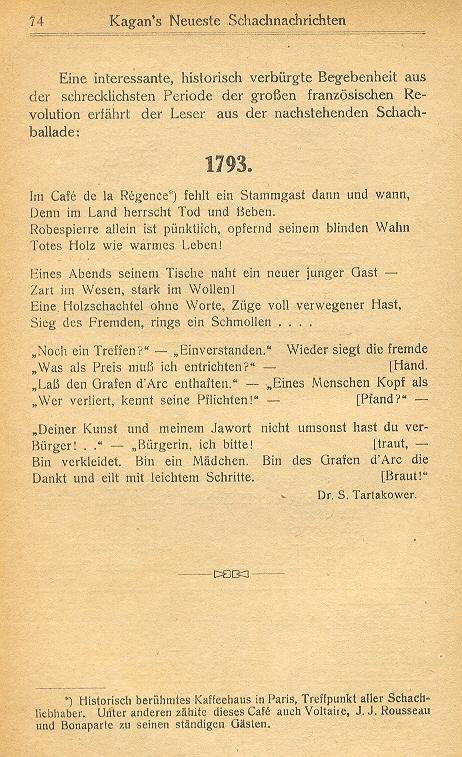
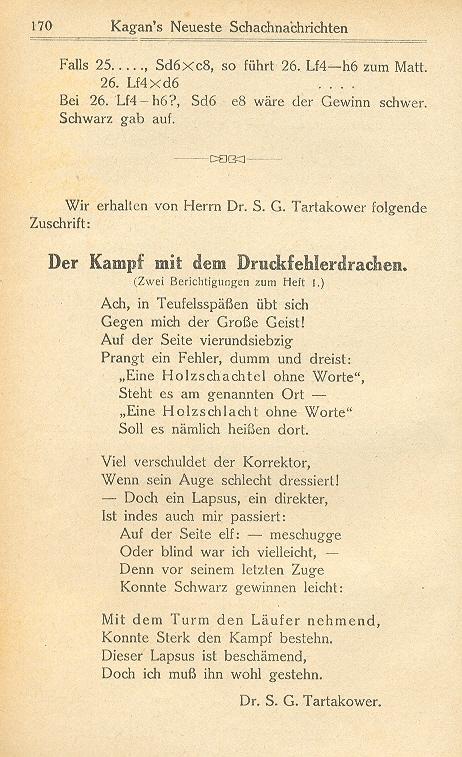
(4278)
David Lovejoy (Mullumbimby, NSW, Australia) suggests that the Robespierre item given in C.N. 4467 may have been the source for Tartakower’s poem ‘1793’. It was presented in C.N. 4278 courtesy of Pierre Bourget (Beauport, Canada), from the Morning Chronicle (Quebec) of 19 April 1893:
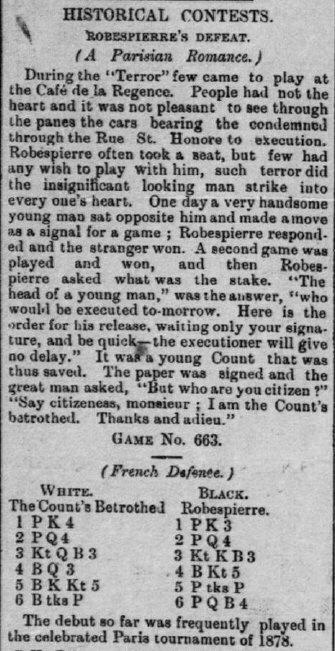
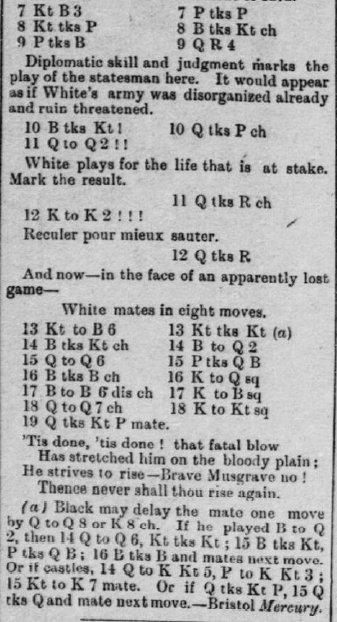
For another version of this story, see pages 161-163 of Chess Pieces by Norman Knight (London, 1949).
(4486)
A contribution from Michael Negele (Wuppertal, Germany) concerns a non-chess book by Tartakower, Das russische Revolutionsgesicht (Vienna, 1923).
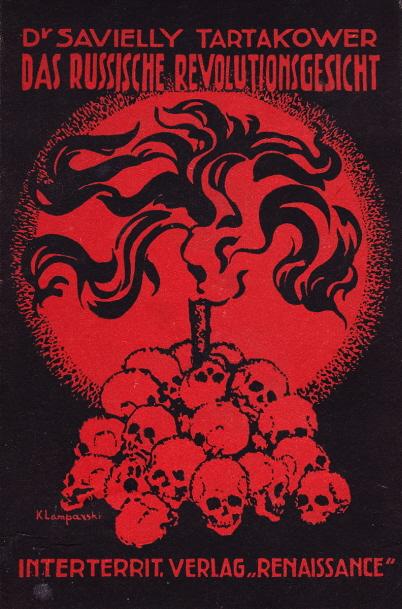
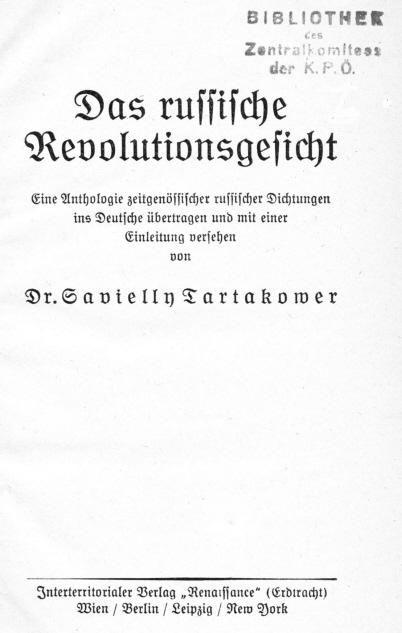
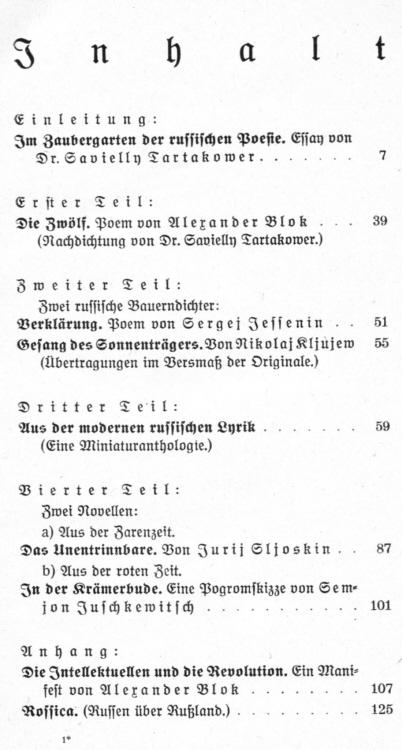
(7870)
From Bradley J. Willis (Edmonton, Canada):
‘I have a book of poetry entitled Chess Pieces by David Solway, published in 1999 by McGill-Queen’s University Press. It consists entirely of poems somehow referring to chess. I confess most of it seems pretty poor stuff to me, but it has a laudatory blurb by the considerable American poet Richard Wilbur, to whom one must, I suppose, defer. Solway is rather well-known in Canada, perhaps more as an acerbic literary critic than for his poetry.
What interests me is that the book is dedicated in part to “Robert Hübner, magister ludi”, and there is a poem (on pages 49-50) entitled “My Game with Robert Hübner”. In it the author refers (curiously, since he is seven years older than Hübner) to “Old Hübner” as having “judging me a dunce / kindly offered to play me once”, evidently a casual game. He then claims to have outplayed Hübner, who, in a lost position, offered a draw “to which from kindness I agreed / since even masters, pricked, will bleed”. I detect no irony. The author seems really to be claiming to have outplayed Hübner.
My problem is that the language Mr Solway uses in referring to chess elsewhere in the book sounds odd coming from a player strong enough to hold Hübner to a draw even in a casual game. For example, in “My Own Chess”, on pages 45-46, he says that “a poor start is my prerequisite”, and gives odd examples, including the “embarrassment of double-check / before I’ve slid a single bishop out” – after which he claims that he then usually begins to play well and in the “accustomed strife / my once-benighted game comes back to life”. It sounds rather like he lost his queen as Black on the sixth move of the old trap in the Petroff. I cannot think of any normal opening line in which one could have a salvageable game after being on the receiving end of a double-check before one’s bishop is out.
My questions are:
1. When and where was the game against Hübner played? (It may be relevant that another poem, “The Tournament” on pages 17-18, mentions Hübner and concerns the 1979 Montreal tournament, although of course that makes the reference to “Old Hübner”, who was then only 30, even odder.)
2. Is Solway’s account of the game with Hübner fact or fiction?
I have been unable to find a review of the book by anybody not a self-confessed patzer. In Books in Canada there was a long review by one Carmine Starnino, but the first paragraph contains the painful solecism “a game rooted in the combative grit of moments like ‘White plays Queen to Rook’ doesn’t sound like an especially accessible resource for song”, which to me rather devalues the highly laudatory analysis that follows.
I should be grateful for any light that can be shed on this intriguing literary puzzle.’
(4065)
Bradley J. Willis has now learned direct from Mr Solway that in the actual game, played on Alonissos island, Greece, he resigned against Hübner on the 12th move. Regarding the bishop double-check matter Mr Solway commented to our correspondent: ‘... It was just a harmless joke. The book is, among other things, a jeu d’esprit, although, at the same time, deadly earnest.’
(4518)
This illustration appeared on page 313 of Harper’s Bazar, 20 May 1882:
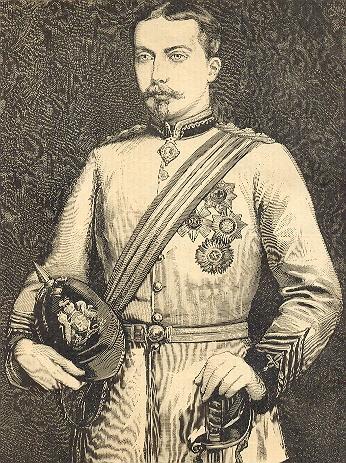
Prince Leopold, Duke of Albany
Below is the acrostic poem by Mrs T.B. Rowland referred to in C.N. 4044:
Tears now we sadly shed apart,
How keenly has death’s sudden dart
E’en pierced a kingdom’s loyal heart.Dark lies the heavy gloomy pall
Upon our royal bower,
Kings, queens, and nations bow their heads,
Each mourn for England’s flower.Oh! God, to her speak peace divine,
For now no voice can soothe but thine.Ah, why untimely snatched away,
Loved Prince – alas, we sigh –
Before thy sun its zenith reached
Athwart the noonday sky.
Noble in heart, in deed, and will,
Years hence thy name we’ll cherish still.
That poem was published on pages 140-141 of Chess Fruits (Dublin, 1884), and page 141 had the following acrostic composition, also by Mrs T.B. Rowland:
Paled e’er that light once bright,
A pleiad passed away
Unrivalled star, afar,
Lost to our sight for aye.Midst wondering gaze, thy blaze
Of glory charmed our eyes,
Rest, Morphy rest – now blest,
Peace o’er thy spirit lies.
Hushed every grief – each care has fled,
Yet still for thee fond tears are shed.
(4066)
A different version was published in the New Orleans Times-Democrat, 27 July 1884, page 10:
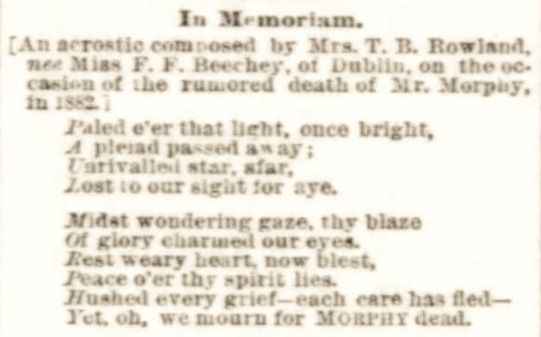
On page 298 of the October 1951 Chess Review Bruce Hayden wrote:
‘My friend and fellow club member, Daniel Costello [sic], is a great enthusiast and even greater wit.’
This was Daniel Castello, who died in 1980 and was mentioned as follows by R.G. Wade on page 527 of the October 1980 BCM:
‘D. Castello will be remembered for his pains-taking proof-reading of many books – Tartakower described him as “The Prince of Proof-Readers”.’
Whether that remark was made by Tartakower in print we cannot say, but certainly Castello’s proofreading was acknowledged in books by Tartakower and by du Mont. Moreover, Tartakower’s A Breviary of Chess (London, 1937) contained English-language versions by Castello of a number of short poems (‘quatrains’) by Jules Lazard. Available on-line at various websites, they are well worth reading, in both French and English.
In part 128 of Bréviaire des échecs (the page number varies from one edition to another) Tartakower introduced a section on Lazard’s verse as follows:
‘De diverses conceptions du jeu des Echecs. Les vers sont extraits du recueil Echéphiles et Echémanes de Jules Lazard.’
The publication details of Echéphiles et Echémanes are being sought, as is further information about Lazard. In the meantime we note that on pages 443-444 of issue 14 of Les Cahiers de l’Echiquier Français (1928) Lazard proposed three words to describe chessplayers:
‘Echéphiles – Amis du noble jeu.
Echémanes – Ceux qui le jouent sans trop le connaître, qui jouent avec les échecs et non aux échecs.
Echéphobes – Les ennemis du jeu.’
The periodical then gave the following poem by Lazard, which includes a reference to woodpushing:
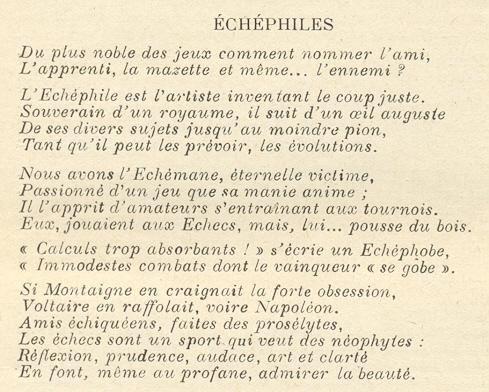
(4326)
A brief feature on Berthold Lasker from page 84 of Die Schachspieler und ihre Welt by Arpad Bauer (Berlin, 1911):
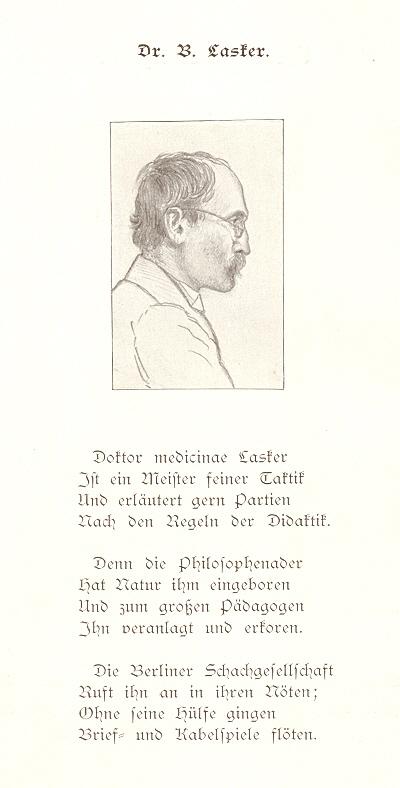
A chess author who has written a book of poetry is Edward R. Brace. Devils to Ourselves (Towanda, 1981) is shown below:
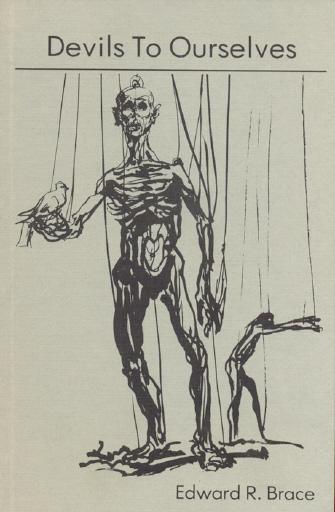
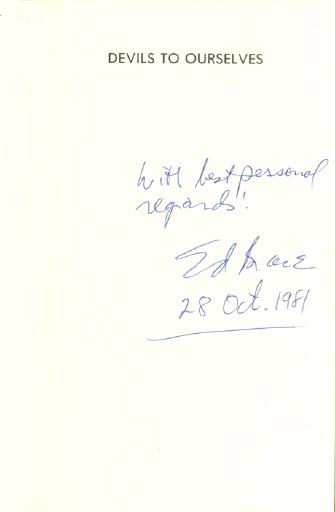
Here we mention the work of James Russell Lowell. Page 220 of David Lawson’s biography of Paul Morphy The Pride and Sorrow of Chess (New York, 1976) noted that he ‘composed a poem of some one hundred lines’ for a ceremony in honour of Morphy in 1859. On page 93 of Grandmasters of Chess (Philadelphia and New York, 1973) Harold Schonberg quoted eight lines from what ‘could easily lay claim to being the worst poem in the English language’.
Rival claims are welcome.
(4961)
Avital Pilpel (Haifa, Israel) mentions The Great Pawn Hunter Chess Tutorial (subtitle: Stories, Poetry and Games) by Manus Patrick Fealy (Bloomington and Milton Keynes, 2006). There are indeed many spectacularly unprintworthy specimens in what is, of course, yet another ‘vanity press’ production. In earlier, happier, days, such material might merely have been chalked on the pavement.
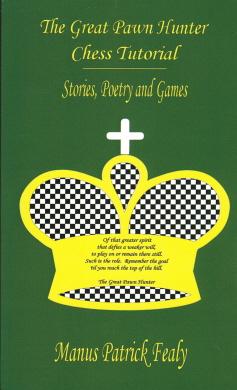
(5183)
Anyone can sling together lists of sourceless quotes about chess, and many lackadaisical webpages do so. However, Mark N. Taylor (Mt Barry, GA, USA) points out a rare exception, PoemHunter.com, and observes:
‘The selection is small and almost entirely drawn from non-chess publications. Nonetheless, it is gratifying to see that a webmaster can do it right.’
(5093)
James Pierce (1833-92) brought out two anthologies of poems, Stanzas and Sonnets (London, 1887) and In Cloud and Sunshine (London, 1890). He was relatively prolific and, for example, the former volume concluded (pages 181-198) with a substantial section of poems on chess which had appeared in the BCM.
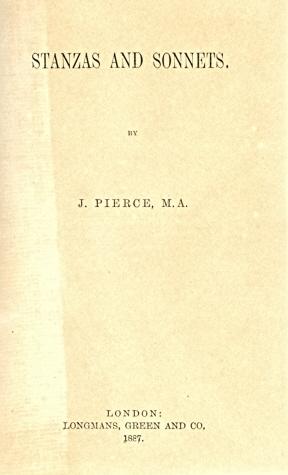
(5254)
Pete Tamburro (Morristown, NJ, USA) refers to a poem by Alfred Kreymborg which was published on page 4 of his book Manhattan Men (New York, 1929) and on page 194 of The Selected Poems 1912-1944 of Alfred Kreymborg (New York, 1945):
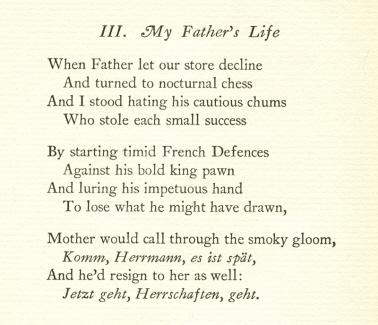
(5421)
Miquel Artigas (Sabadell, Spain) draws attention to Himno al ajedrez, by Ernesto Jaumeandreu Opisso (Barcelona, 1928).
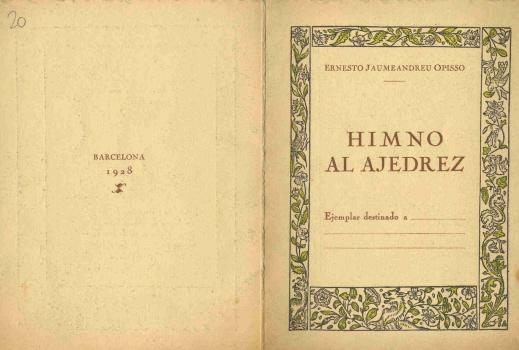
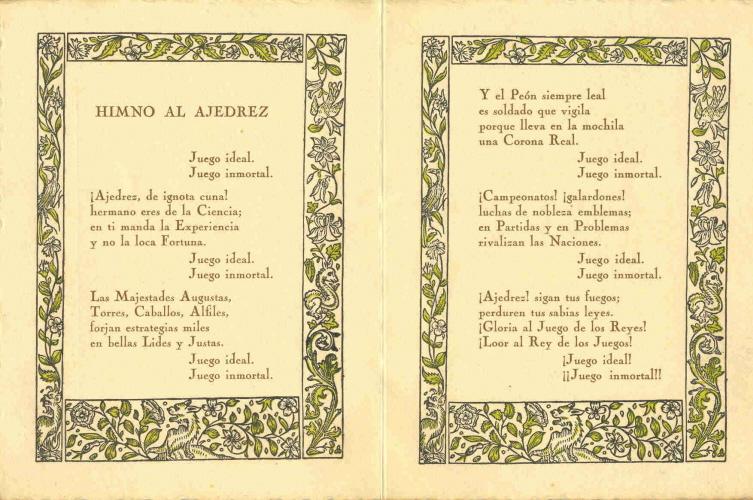
(5425)
William Jones (1746-94) wrote the ‘Caissa poem’ while in his teens, in 1763. It was published in 1772, and in his Preface he remarked:
‘It will be needless, I hope, to apologize for the Pastoral, and the poem upon Chess, which were done as early as at the age of 16 or 17 years, and were saved from the fire, in preference to a great many others, because they seemed more correctly versified than the rest.’
In quoting the above we are following the text on page 199 of The Poetical Works of Sir William Jones, volume 1 (London, 1810), which had this frontispiece:
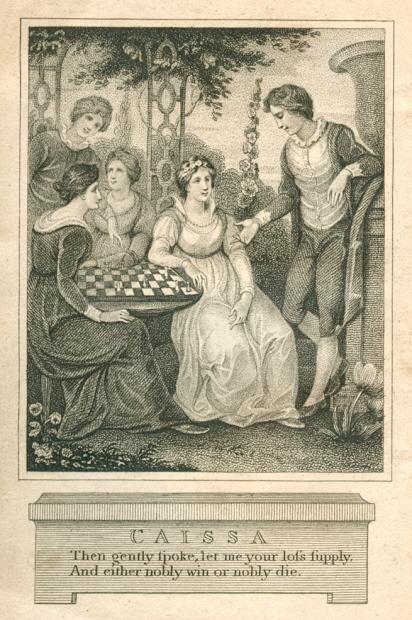
(5434)
A political analogy by Sir William Jones, in a letter dated 15 May 1780 to William Adams:
‘... I, from my early youth, have considered our constitution as analogous to a game at chess, where the king is respected and preserved from all danger, but where the principal strength consists in the pawns, or people, although the pieces, or nobles, have also no small share in the mixed system.’
Source: The Life and Mind of Oriental Jones by Garland Cannon (Cambridge, 1990), page 364.
The illustration below comes from volume one of Letters of Sir William Jones (London, 1821):
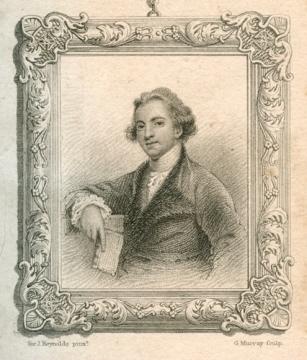
(5442)
Wayne D. Komer (Toronto, Canada) sends a 32-line poem ‘Master-passion’ by Roger Woddis which was published in the New Statesman of 7 July 1972, page 10. It concerned the world championship match in Iceland and was by no means flattering to the American challenger’s conduct or state of mind.
(5569)
Wanted: information about the poet ‘Veritas’, who brought out A Selection of Poems (Bradford, 1936). Pages 25-46 comprise chess verse.
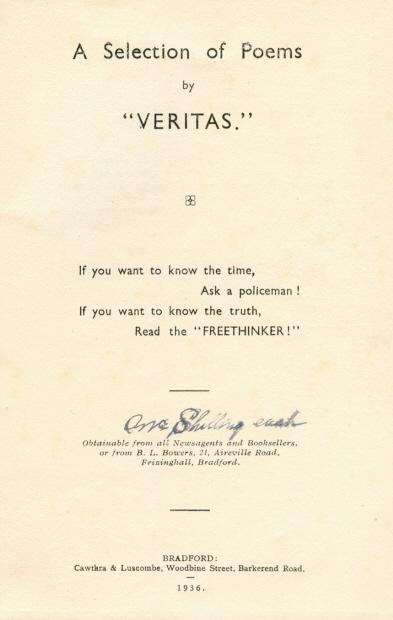
‘Veritas’ was identified on various pages as B.L. Bowers, and page 3 indicated that he was born on 15 April 1855. As shown above, the title-page stated that the book could be obtained from ‘B.L. Bowers, 24 Aireville Road, Frizinghall, Bradford’, and we note from webpages that today that is the address of a publisher of poetry, the Redbeck Press.
(5803)
Bradley J. Willis (Sherwood Park, Alberta, Canada) quotes a composition from page 136 of Amy Lowell: Selected Poems edited by Honor Moore (New York, 2004):
Still Life
Moonlight Striking upon a Chess-Board
I am so aching to write
That I could make a song out of a chess-board
And rhyme the intrigues of knights and bishops
And the hollow fate of a checkmated king.
I might have been a queen, but I lack the proper century;
I might have been a poet, but where is the adventure to
Explode me into flame.
Cousin Moon, our kinship is curiously demonstrated,
For I, too, am a bright, cold corpse
Perpetually circling above a living world.
Our correspondent notes that in 1926, the year after her death, Amy Lowell was awarded the Pulitzer Prize for Poetry.
She was a cousin of Robert Lowell, two of whose works were given on pages 67-68 of The Poetry of Chess edited by Andrew Waterman (London, 1981).
(6124)
From John Roycroft (London):
‘The fifth line of the first of Vladimir Nabokov’s trio of linked sonnets (1924) on composing a chess problem reads: “Там Филидор сражался и Дюсер”. It is not clear if, or if so how, Дюсер is to be transliterated. However one treats it, the name is quite unfamiliar in the context of Philidor. One seems forced to conclude that Nabokov invented it, though a remote possibility is an obscure musical connection.
Can anyone shed light?’
(6202)
In C.N. 6202 John Roycroft asked whether any reader could shed light on the name Дюсер in a 1924 sonnet by Vladimir Nabokov, the line being ‘Там Филидор сражался и Дюсер’.
Dan Scoones (Port Coquitlam, BC, Canada) has drawn our attention to a Russian webpage where Gennady Nesis proposed two theories. Below is the relevant text, in a translation supplied by Mr Roycroft:
‘The coffee house frequented by Philidor can only be the Parisian Café de la Régence, first opened in 1718 and patronized by chessplayers for two centuries. They included many famous names, such as Voltaire, J.-J. Rousseau, D. Diderot and, later, B. Franklin, M. Robespierre and Napoleon Bonaparte. Among the Russians were I. Turgenev and M. Chigorin. So whom could Nabokov have had in mind?
The first candidate is Sire de Légall (1702-1792), tutor to Philidor, but I have an alternative to propose.
It is known that the future Emperor Paul of Russia and his spouse Maria Fyodorovna paid France an unofficial visit in 1782. To obviate the conventions of protocol, the son of the Empress Ekaterina [name corrected to ‘Ekaterina’, i.e. Catherine the Great, by Mr Roycroft, whose original translation had ‘Elizabeth’] travelled under the pseudonym of Count Severny. We now cite a “Bibliography” published in Paris in 1864: “In the summer of 1782 an unprepossessing gentleman of small stature dropped in to the Régence and stood watching one of the chess contestants. The unknown guest indicated a move he thought was the best and, encountering surprise, made a wager of one louis d’or that he was right. Winning his bet he handed the gold coin to a dumbstruck manservant and departed without a word. Only then did those present guess that the lavish guest was none other than Paul, heir to the Russian throne.”
So why Дюсер? Perhaps the common particle “de” or “du” preceding a name in France indicates a connection at the court, while сер is the initial syllable of “sérénissime” (most serene) or even “Sire” (sovereign).
Be that as it may, our readers may care to rack their brains on this riddle.’
(6259)
Around 1800, before he had even entered his teens, Edward Smedley wrote this poem:
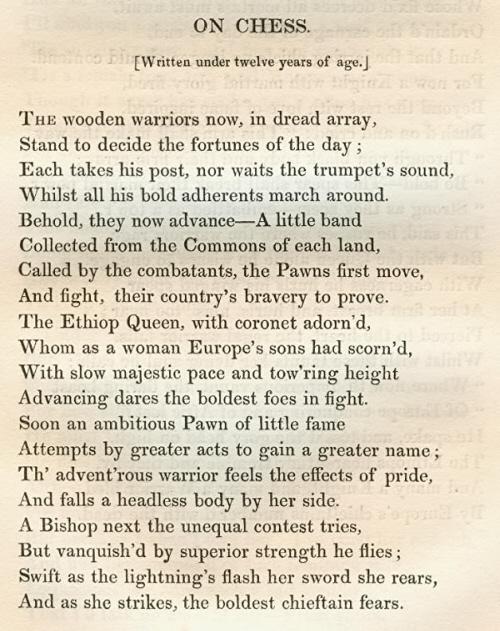
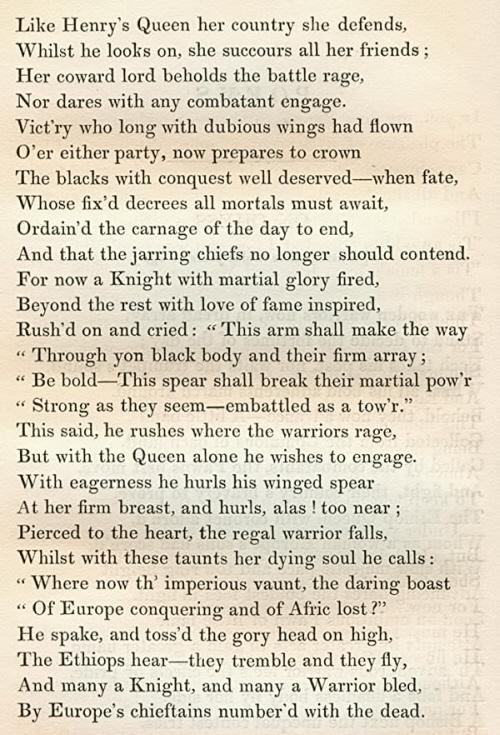
Source: Poems by the Late Rev. Edward Smedley, A.M.
(London, 1837), pages 107-108.
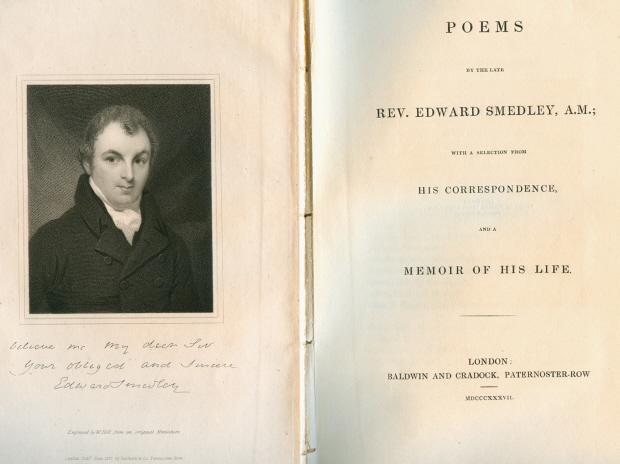
(6294)
An addition to the many C.N. items on poetry is a sequence of compositions on pages 107-118 of Poems, Songs, and Sonnets by William M. Stenhouse (Glasgow, 1886): a five-page poem ‘Telegraphic Chess Contest’ (Christchurch v Dunedin) followed by the sonnets ‘Caissa Regina’, ‘The Pawn’, ‘The Knight’, ‘The Bishop’, ‘The Rook’, ‘The Queen’ and ‘The King’. From page 107:
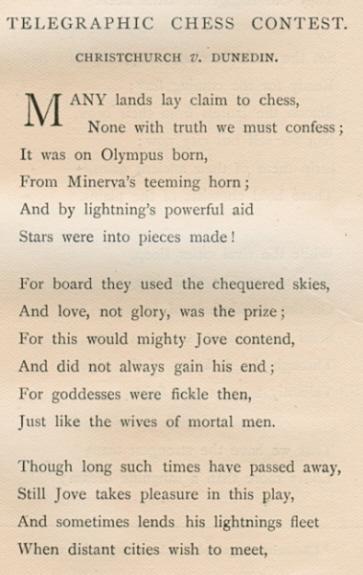
Stenhouse’s inscription in our copy:
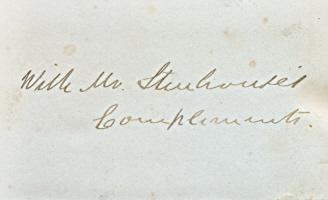
Some biographical information about him is available at a New Zealand webpage on physicians and surgeons.
(6376)
Some comic verse, ‘Kann That Caro’ by Huxley St John Brooks, from page 171 of the November 1932 American Chess Bulletin:
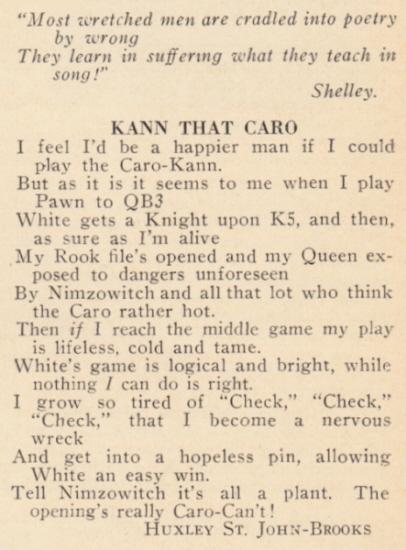
(7439)
From CHESS, April 1941, page 99:

From the correspondence section in the June 1952 CHESS, page 180 comes this poem by D.J. Morgan:
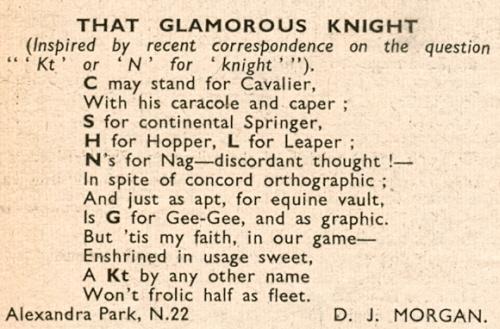
Our feature article on Lord Dunsany mentioned that after Capablanca’s death he published the following epitaph in CHESS, June 1942, page 131:
Now rests a mind as keen,
A vision bright and clear
As any that has been
And who is it lies here?One that, erstwhile, no less
Than Hindenburg could plan,
But played his game of chess
And did no harm to man.
We mentioned that the theme of the harmlessness of chess was taken up again by Lord Dunsany the following year in what is perhaps the finest chess poem ever written. It marked the death of R.H.S. Stevenson and was published on page 74 of the April 1943 BCM:
One art they say is of no use;
And yet, if all whose hopes were set
The mellow evenings spent at chess,
The thrill, the triumph, and the truce
To every care, are valueless.
On harming man played chess instead,
We should have cities standing yet
Which now are dust upon the dead.
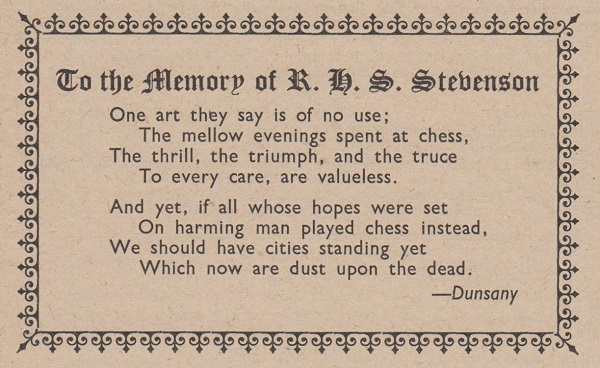
Other chess poems by Lord Dunsany were ‘Where is it?’ (CHESS, June 1943, page 140) and a composition (first line: ‘Silence. And Silence still’) which he recited when opening the Hastings, 1950-51 congress. That latter poem was published on page 33 of the February 1951 BCM, page 6 of the January-February 1951 American Chess Bulletin and page 127 of The Treasury of Chess Lore by Fred Reinfeld (New York, 1951).
Regarding the poetry of Sheriff Walter Cook Spens, see The Pride and Sorrow of Chess.
Below are three poems by B.H. Wood which appeared in the
following issues of the Chess Amateur: December 1929 (page
56), January 1930 (page 80) and March 1930 (page 127). They were
reproduced in C.N. 2595.
The Chess Cafe I
Here is the life of Chess! – What’s master play
But its post-mortem? Scattered far and near
Are business men at leisure, youths and grey
Ancients, immersed in mental rivalry.
Here
How happily I’m come, for here, to me,
All life is peace; my roll and coffee seem
Food of the gods; the games I play and see
Lit with the hazy luminance of a dream.
Though champions still make a toil of chess, We revel in unsound contentedness.The Chess Cafe II
When I was young, when I was young,
In chess my soul was buried quite;
Imaginary problems hung
Suspended o’er my bed at night:
In games of chess I gained sublime
Incognisance of space and time.
Now I am old, now I am old,
My furnaces of joy are cold –
My mental galleons, no more
Divine, now cruise a homelier shore.The Chess Cafe III – The Spectator
Quiet in the corner sitting, not a word
He utters, but, his eyes glued on their board,
Where in oblivion the players brood,
He spends his lifetime’s dearest hours.
His food
Is cold, his lighted pipe goes slowly out ….
Yet when the game ends, when they talk about
Its ins and outs, its characteristic twist,
He’s seen that winning line a master missed!
You ask him for a game – ‘I never play
Myself – hardly a game a year’, he’ll say.
C.N. 8647 gave a slightly earlier poem by B.H. Wood, entitled ‘The Drowser’:
Ah, reverie! Ten thousand heads I see
Bent over chess-boards, an infinity
Of minds engaged in battle, fiendishly,
Keenly, or calmly, as the case may be:
World-wide, the neophyte, the veteran,
The studious problemist, the fairy fan ...
“What’s that? – I’m nearly sending you to sleep?
Sorry! – but this position’s rather deep.”
Source: Chess Amateur, September 1929, page 268.
See too Rupert Brooke and Chess.
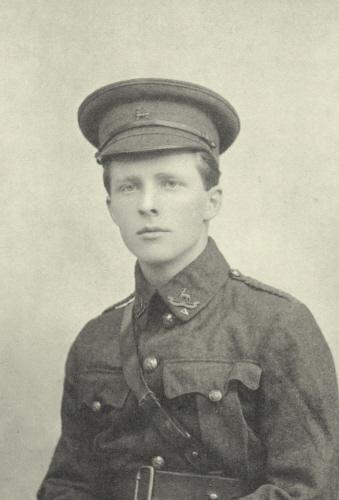
Rupert Brooke
Paolo Fiorelli (Cernusco sul Naviglio, Italy) draws attention to a poem by Eugenio Montale, ‘Nuove stanze’. Its first line is ‘Poi che gli ultimi fili di tabacco’.
Alessandro Mossa (Florence, Italy) refers to two sonnets by Jorge Luis Borges, ‘Ajedrez’. They begin ‘En su grave rincón, los jugadores’ and ‘Tenue rey, sesgo alfil, encarnizada’.
A small collection of instructional verse for children is Chess Poems by Michael Kusen (Woodside, 2000):
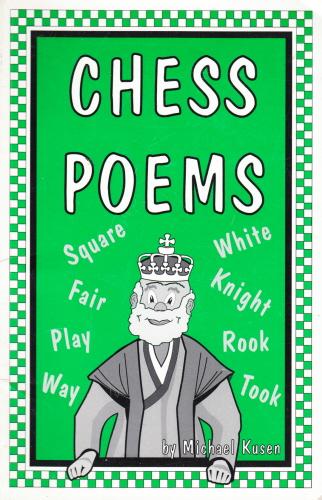
From page 70 of Ajedrez, March 1930:
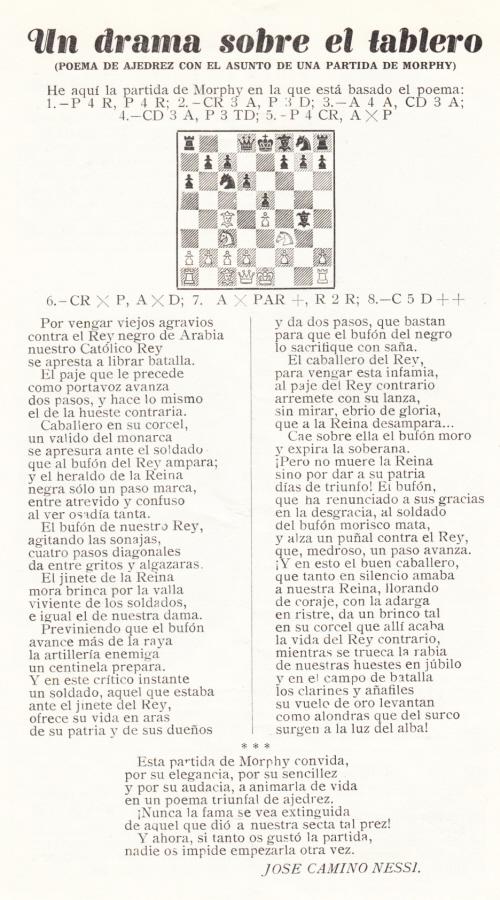
How did the game (1 e4 e5 2 Nf3 d6 3 Bc4 Nc6 4 Nc3 a6 5 g4 Bxg4 6 Nxe5 Bxd1 7 Bxf7+ Ke7 8 Nd5 mate) come to be ascribed to Morphy?
(7936)
From Michael Negele (Wuppertal, Germany) comes information about a posthumous anthology of verse by Johann Berger, Liebe erhelle die Zukunft (Graz, 1934):
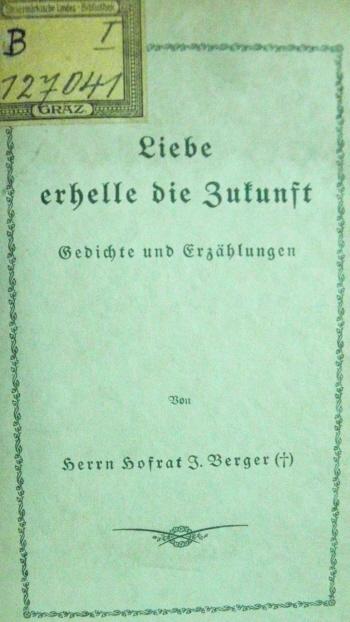
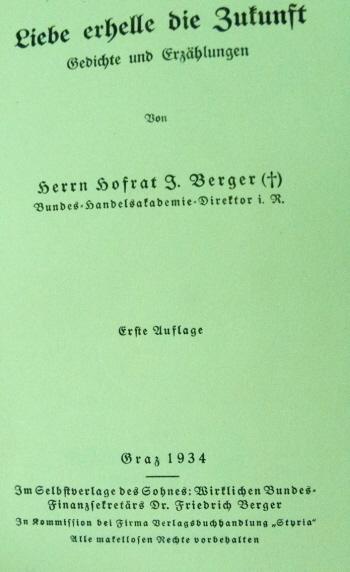
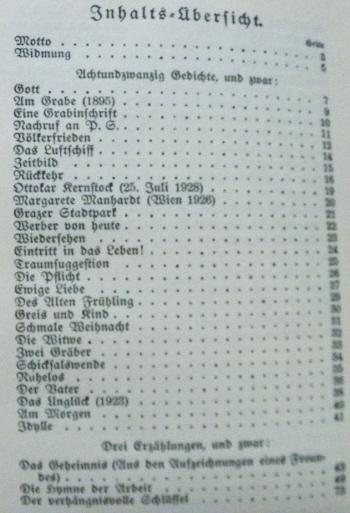
(7944)
A poem by H.T. Bland on the demise of the Chess Amateur was published on page 154 of the September-October 1930 American Chess Bulletin. On page 119 of the July-August 1931 issue he contributed a poem entitled ‘The International Chess Team Contest’.
Page 166 of The Personality of Chess by I.A. Horowitz and P.L. Rothenberg (New York, 1963) gave ‘a hitherto unpublished limerick-acrostic, the authorship of which we are ready to confess only if it is well received’:
Caissa, the goddess of Chess,
Has this task, no more and no less;
Every game, match and damn bit,
Sicilian and gambit
She must ever be ready to bless.
John Townsend (Wokingham, England) notes the following poem by ‘Judy’ on page 53 of the Westminster Chess Club Papers, 1 August 1868:
A Game of Chess
Life’s something like a game of Chess,
The board our little sphere;
Alternate bright and darker spots,
Like our existence here.At first, like ‘pawns’, we quickly move,
No checks we meet from Time;
And then the ‘bishops’ cross our path
Ere yet we’ve reached our prime.Onward, like ‘kings’, our duty done
On our appointed square;
Alas! to find our cherish’d hopes
Are ‘castled’ in the air!Like ‘knights’, right boldly we advance,
So firm at first our aim;
Then turn aside away from good,
Afraid to combat shame.Our heart’s ‘queen’ lost! do not despair,
Nor shrink in heartfelt pain;
By breaking thro’ our manhood’s foes,
We’ll win her back again!And having tried our best to win,
We’re ‘mated’ p’r’aps at last!
With hopes fulfill’d and duty done,
May our life’s game be past.The struggle closed; with all we find
A common resting-place,
Where foes can meet without recoil,
And friends without embrace.So life is like a game of Chess,
The board our little sphere;
Alternate bright and darker spots,
Like our existence here.
Regarding comparisons between chess and life see too, for instance, the chapter entitled ‘The Moralities’ in A History of Chess by H.J.R. Murray (Oxford, 1913) and ‘The Morals of Chess’ by Benjamin Franklin. ‘Life is like a game of chess, changing with each move’ is often described as a ‘Chinese proverb’, but on what basis?
In the present item the focus is on poetry, and we add a contribution by Frank Preston Stearns to the October 1898 American Chess Magazine, page 156:
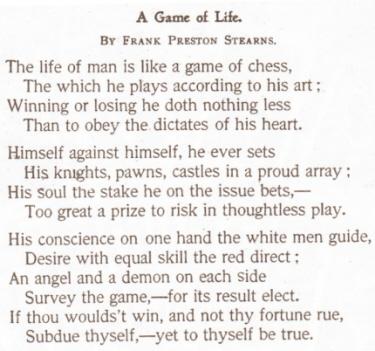
Below is an anonymous composition from page 214 of the April 1915 Chess Amateur:
Life is Like a Game of Chess
How often would we fain confess
That life is like a game of chess,
In thought and varied movement;
And looking back it seems so plain
That could we start our game again,
In much we’d make improvement.
Finally, from the frontispiece to the May 1928 BCM a composition by Charles William Hopper:
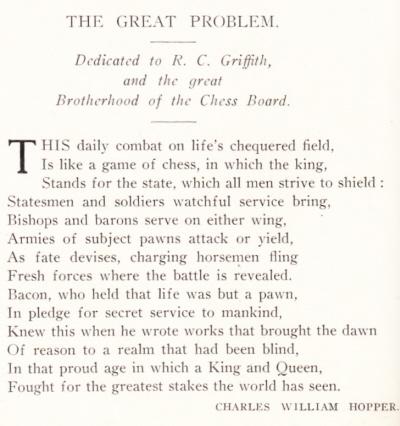
(8037)
The poem given on page 164 of the American Chess Bulletin, November 1933 (see Chess in the Courts) can be traced back to page 34 of The Journal of the Royal Asiatic Society of Great Britain and Ireland (London, 1852), in a paper by Nathaniel Bland ‘On the Persian Game of Chess’, read on 19 June 1847:
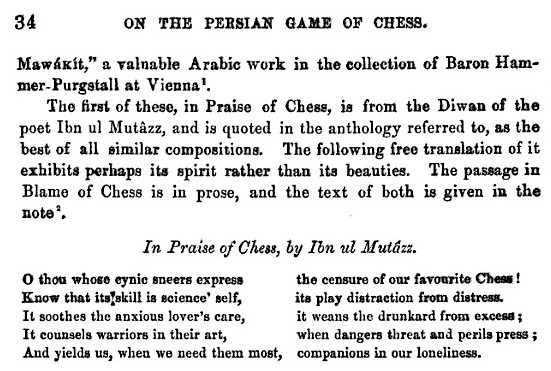
An oddity is the attribution on page 209 of the American Chess Bulletin, December 1921:
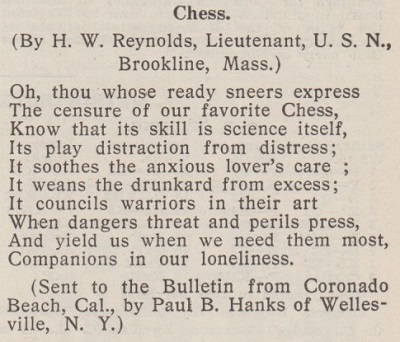
(9036)
A set of poems on the theme of stalemate was published on pages 129-130 of Brentano’s Chess Monthly, August-September 1882, from the South Australian Chronicle and Mail.
From page 281 of the June 1926 BCM:
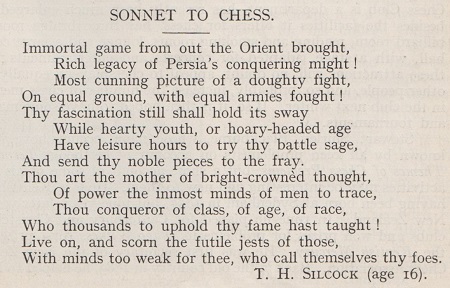
Page 241 of the June 1927 BCM referred to ‘T.H. Silcock of Taunton Grammar School’. Information about his later life – Thomas Henry Silcock (1910-83) – can be found on the Internet.
(9327)
Regarding Silcock, see too C.N. 9354.
Another poem about Capablanca, by F.P. Hier, was published on page 163 of the September-October 1924 American Chess Bulletin:
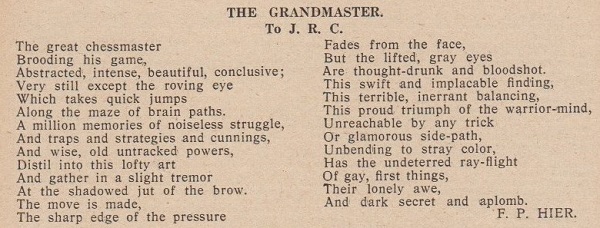
(9575)
From an editorial entitled ‘1943 ...?’ by Jean-Charles de Watteville on pages 1-2 of the Schweizerische Schachzeitung, January 1943:
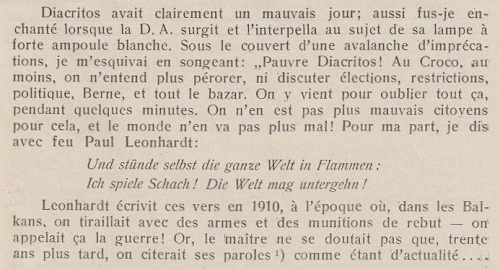
The footnote on page 1 read ‘Que l’on retrouvera en entier dans la R.S.E. de 1910, p. 144’, but that reference, to the magazine’s French name (Revue suisse d’échecs), had the wrong year. Leonhardt’s poem, ‘Ich spiele Schach!’, was published on page 144 of the August 1912 issue:
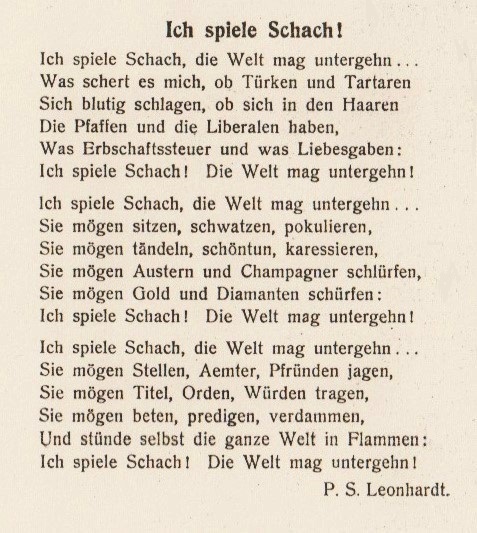
(9642)
An acrostic poem by Roger J. Wright in memoriam of James Rayner was published on page 300 of the July 1898 BCM. It was followed by a four-line poem marking Rayner’s death by Philip H. Williams.
Michael McDowell (Westcliff-on-sea, England) sends a poem by A.C. White published on page 81 of Memories of My Chessboard (Stroud, 1909):
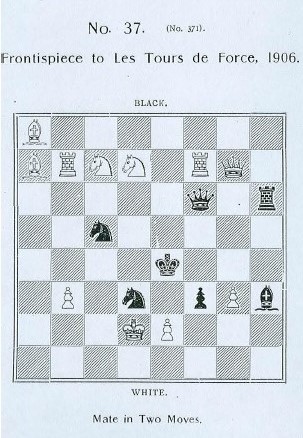
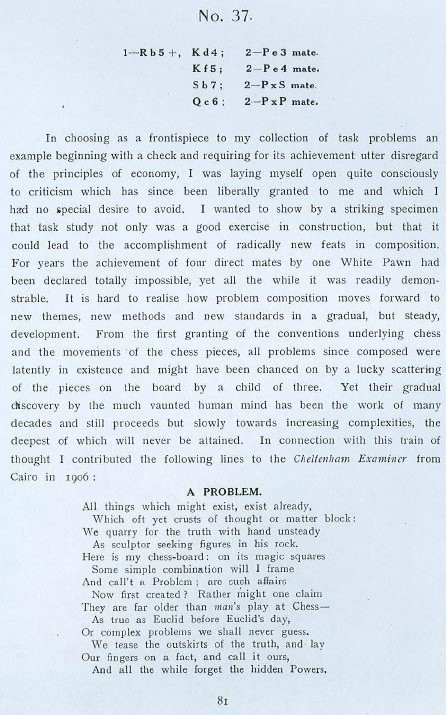
As shown below, the poem had been reproduced from the Cheltenham Examiner on page 8 of the Falkirk Herald, 21 March 1906:
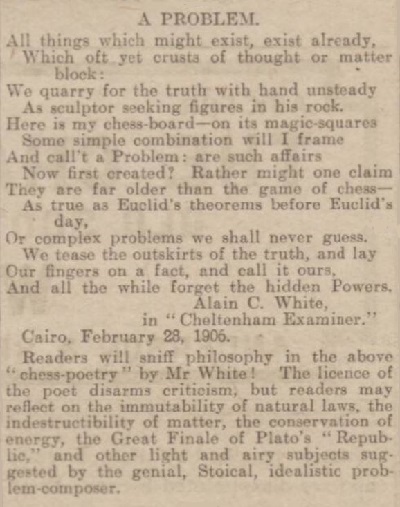
It was also published on page 177 of the April 1906 BCM.
(10315)
Martino Albonetti (Faenza, Italy) notes that in 1984 Primo Levi wrote two poems which refer to chess.
(10689)
Page 233 of the Chess Player’s Chronicle, 1 October 1878 had an acrostic by W.H. Cubison on Zukertort:
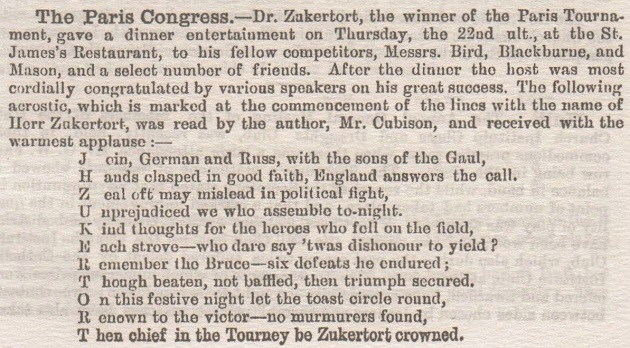
The May 1889 issue of Hoffer’s Chess Monthly (pages 259-260) published a poem by Cubison in commemoration of Kolisch, and page 265 of the same issue carried, anonymously, the notorious ‘Sty-nits’ verse. On page 180 of the June 1889 International Chess Magazine Steinitz deduced that Cubison had written that poem too, an accusation for which he apologized ‘most sincerely and to the fullest extent’ on page 298 of the October 1889 issue of his magazine.
(11060)
Concerning the ‘Sty-nits poems’, see C.N. 11071.
An item on page 370 of Womanhood, November 1905:
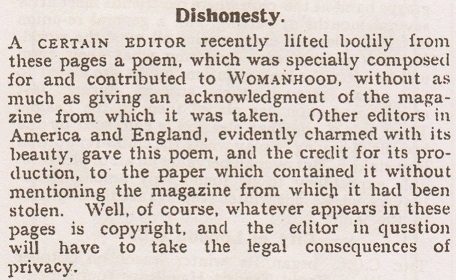
The poem in question was not identified, but the following had been published on page 130 of the April 1905 issue:
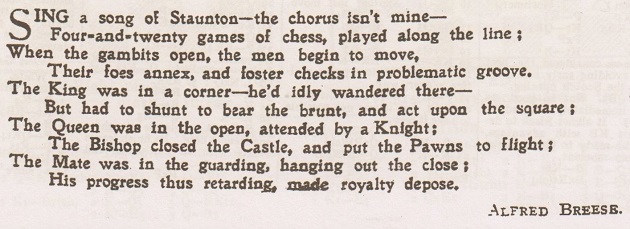
Alfred Breese’s ‘Sing a song of Staunton’ composition appeared on page 154 of Lasker’s Chess Magazine, August 1905:
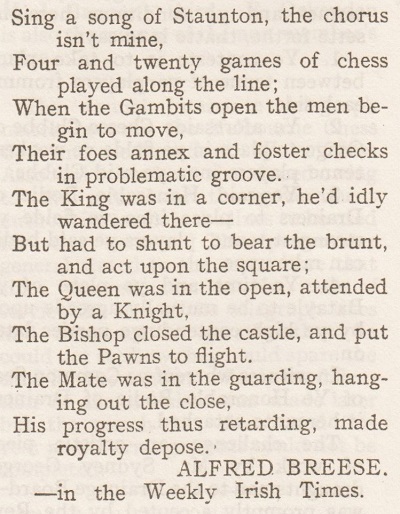
The credit to the Weekly Irish Times will be noted, but Gerard Killoran (Ilkley, England) informs us that he has been unable to find the poem in any 1905 edition of that newspaper.
(11279)
The poem in C.N. 11279 has reminded John Townsend of the following on page 120 of the Westminster Papers, 1 December 1869:
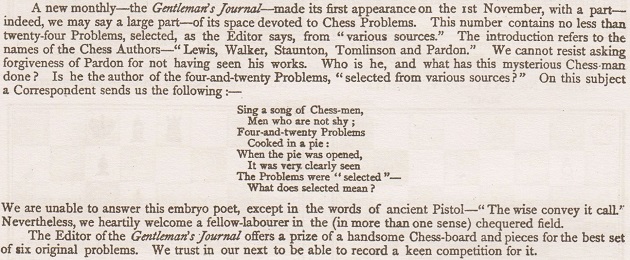
From page 27 of Games & Puzzles, July 1976:
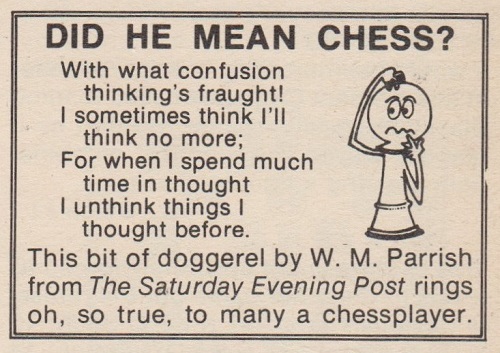
The poet’s name was given as M.M. Parrish on page 71 of the Saturday Evening Post, 24 November 1951:
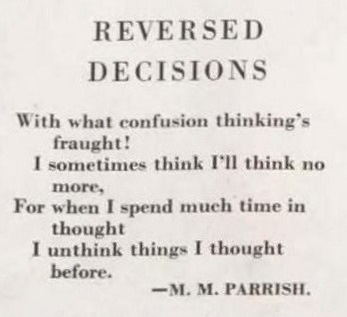
Much chess poetry by ‘E.M. Vicars’ (Mrs Rayleigh Vicars) was published in the Chess Amateur. Her death was reported on page 97 of the February 1929 issue, and page 121 of the March 1929 edition carried a letter from her husband, G. Rayleigh Vicars (Wood Dalling, Norwich).
C.N. 359 reproduced the following poem by Leonard Walls, courtesy of Paul Timson (Whalley, England):
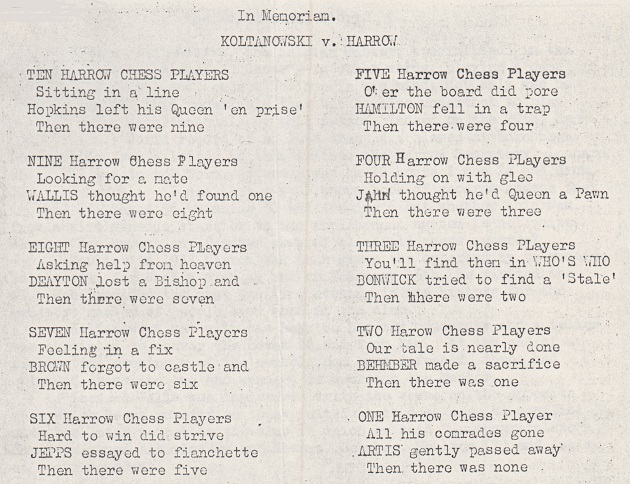
Mr Timson also provide information regarding the simultaneous display by Koltanowski (Harrow Chess Club, 15 February 1937):
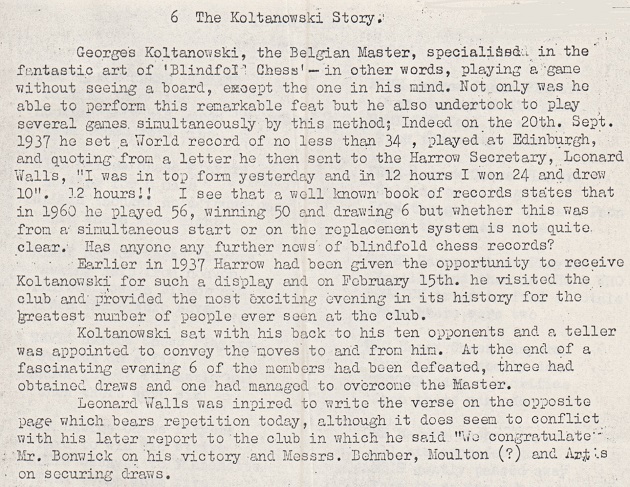
At present, we lack exact sources for these items, and shall be grateful if a reader can provide them. For a game annotated by Leonard Walls in the Harrow Chess News, 1951, as well as his obituary in the Middlesex Chessletter, see Chess Jottings.
The Cleveland Public Library has provided the following cartoon and double acrostic (Pillsbury/Janowski) on page 208 of the November 1898 American Chess Magazine:
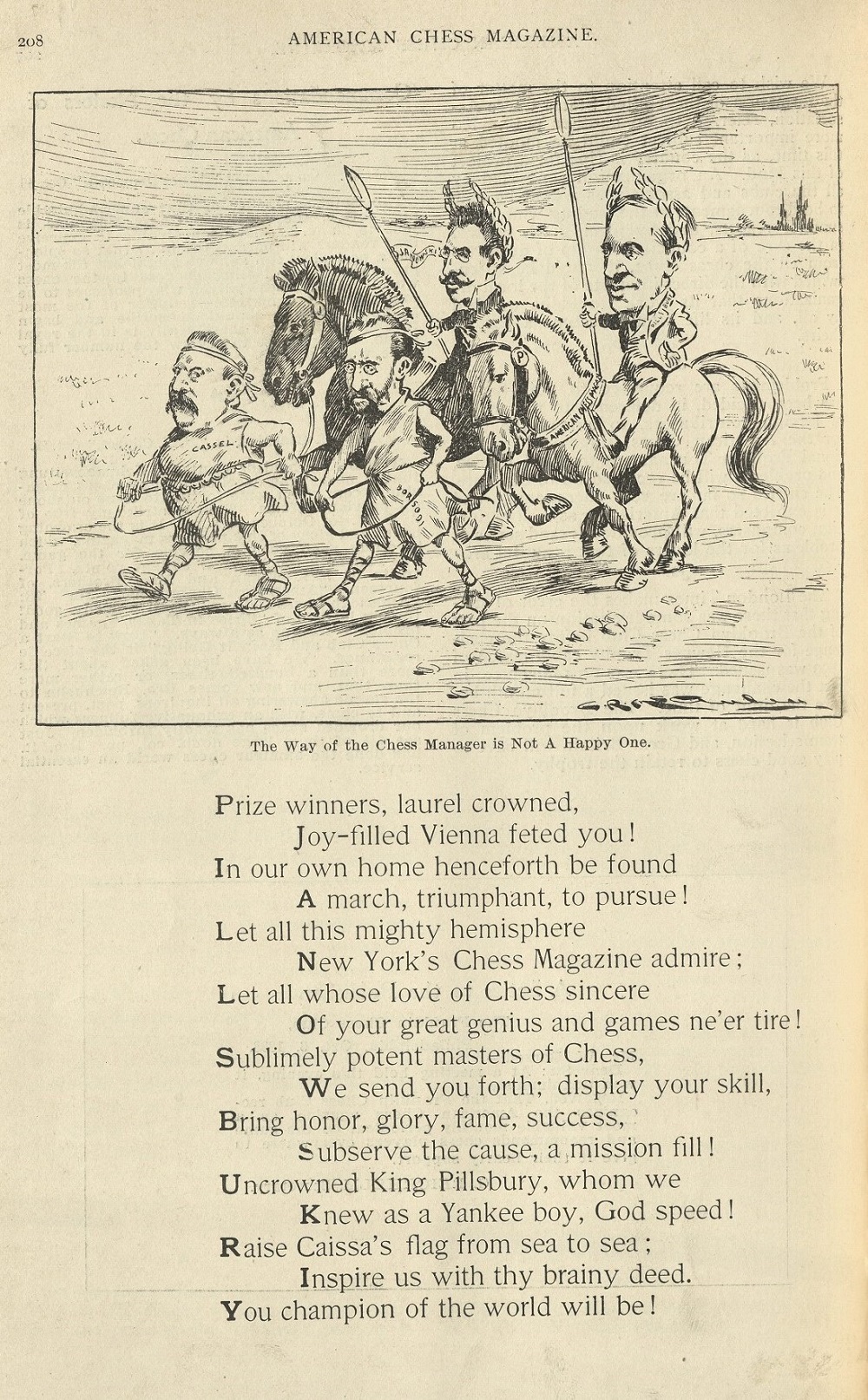
To the Chess Notes main page.
To the Archives for other feature articles.
Copyright: Edward Winter. All rights reserved.